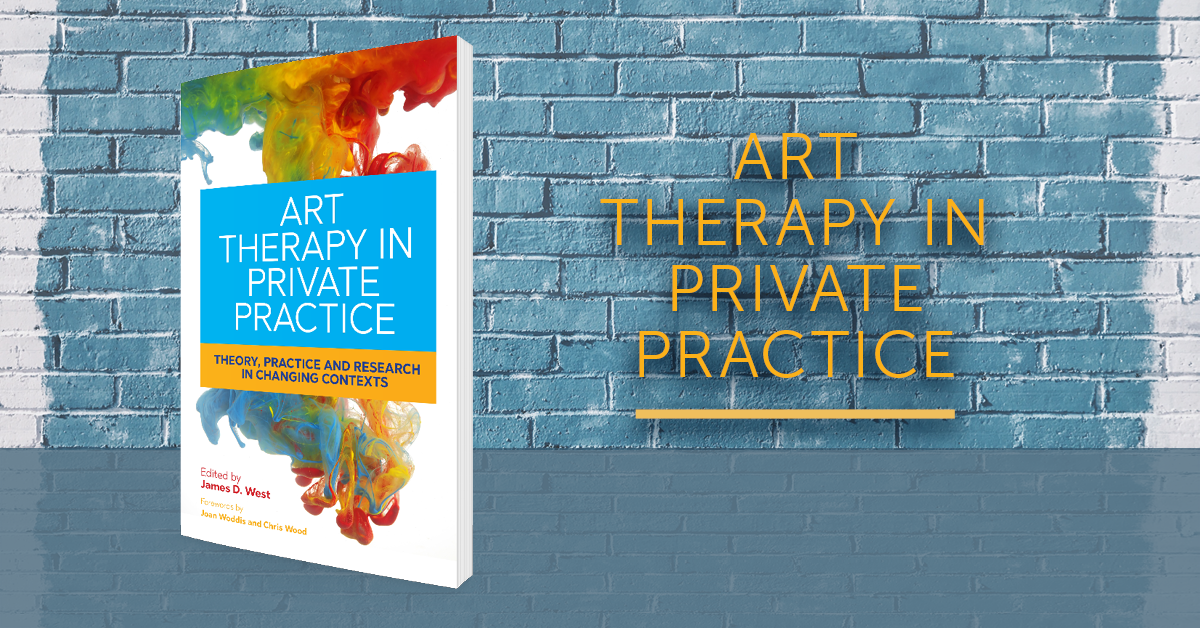 Under our current economic circumstances many art therapists are being forced to find alternative bases for practice and so they are necessarily orientating themselves towards self-employed, independent community work and private practice.
Under our current economic circumstances many art therapists are being forced to find alternative bases for practice and so they are necessarily orientating themselves towards self-employed, independent community work and private practice.
In this blog piece, James D. West – editor of Art Therapy in Private Practice – aims to show how this can be a positive choice and highlights some of the virtues of this practice.
When an art therapist qualifies they have experienced many years of preparation leading to their becoming a state regulated art therapist: typically seven years, if you include the three year bachelors at art school, a year in community work, a foundation course, and then the two years of the art therapy training. At this stage they have shown great tenacity, commitment and dedication in order to practice this form of therapy and already have many, often unacknowledged, skillsets (business acumen, marketing expertise and often other professional qualifications).
Art Therapy in Private Practice is for those therapists who, after all these years of formation, need a guide of the many choices that face them at this stage of their career and, importantly, whether they wish to continue to develop their professional identities, partly or wholly, in the public or independent/ private sector.
The book begins with an explorations of some of these work contexts: the therapist’s home, community referrals from the NHS, a community interest company and an art therapy centre. It then moves to a consideration of working with children and families outside the school and hospital setting. The issues of the training and formation of therapists towards self-employment and independent work are then taken up before looking at risk assessment in private practice and the need for supportive supervision and self-care as part of ‘self-governance’.
The book presents a number of case studies, surveys and professional guidelines formed by the authors alongside and in conjunction with our professional bodies and the state regulator and explores the relevant documents, principles and ethical guidance provided for private practice.
The collaborative research project of the authors, the writing of the book and its practical basis make it an ‘experience near’ picture of the ‘lived experience’ of private art therapy practice in the UK. The book innovatively looks into the transformative effects upon research epistemology brought about by therapist’s direct accountability to their clients through the fee and this highlights the urgent need for the profession as a whole to consider the effects of context on research and its knowledge bases.
Our moving into these different contexts of practice presents a number of challenges to our professional identity, whose historical roots are found in the post war period that also saw the founding of the NHS. The authors gathered in this collaborative research project have looked at the realities of their private independent provision, expanded on our particular areas of interest and reflected on their concerns and the challenges they present to the profession’s identity which was formed in the statutory provisions of hospitals, schools and social services.
As I state in the introduction this is the book I would have wished to have had when I first chose the pathway towards self-employment and private practice many years ago. I now hope the advice contained between its covers on setting up your self-employed business, on governance, self-care supervision, and collaborative research with clients, supports you on your own journey into private and independent practice.
James D. West is an art therapist in private practice. He is a peer reviewer for the International Journal of Art Therapy and coordinator of the BAAT Private Practice Special Interest Group. He is the editor of Art Therapy in Private Practice: Theory, Practice and Research in Changing Contexts, Jessica Kingsley Publishers 2017